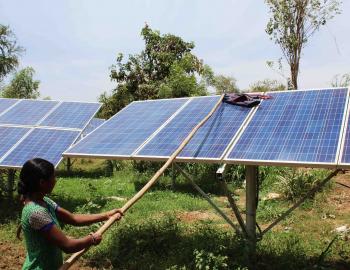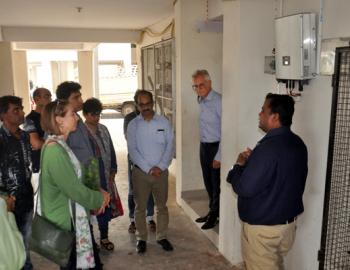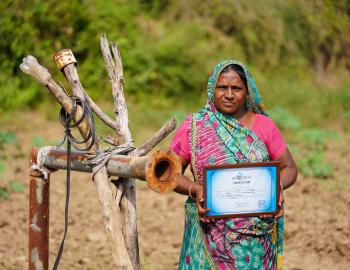Working paper: Learning from eight water funds in Colombia, Ecuador and Peru
Working paper: Learning from eight water funds in Colombia, Ecuador and Peru
Fostering local resilience and enhancing equity through ecosystem-based adaptation: Learning from eight water funds in Colombia, Ecuador and Peru
Water is the foundation of human well-being, sustaining all aspects of life. However, in Colombia, Ecuador, and Peru, current water governance faces challenges such as sectoral silos, unsustainable development, insufficient regulation, and limited resources, all of which are intensified by climate change. To address these issues, water funds have emerged as a promising mechanism to protect water sources, improve access, and ensure sustainable water management for communities and ecosystems.
This working paper aims to support water funds and other institutions implementing EbA approaches in better incorporating and reporting on key social and environmental measures needed to strengthen water governance and ensure equitable access. The recommendations outlined in this brief seek to inform a deeper understanding of how these innovative, long-term strategies can enhance multiple co-benefits and attract potential donors, investors, and practitioners to scale the impact of water funds. More deliberately embedding an EbA and gender equity and social inclusion (GESI) perspective in water fund operations provides a catalyst to reinforce their role as localised, multi-actor models for water, climate resilience, and well-being for people and the planet.
Five main findings emerged from the study:
-
The water funds are implementing EbA.
-
Water funds are currently informed by local knowledge mobilised through participatory and co-creation processes, with limited inclusion of measures based on climate science.
-
The conservation, restoration, and sustainable-use measures analysed are effective in supporting ecosystem resilience and climate change adaptation. While some integrate social and gender perspectives, overall, they lack a deliberate focus on the social dimensions of resilience, particularly for those most vulnerable to climate change.
-
As water funds are multi-actor and multi-sector governance schemes, they align with the principles of an EbA approach. However, they lack clear linkages with broader adaptation strategies and policy frameworks.
-
There is insufficient focus on monitoring, evaluation, and learning, which could help improve strategies and highlight the environmental and social co-benefits of water fund activities, such as increased biodiversity and associated livelihood opportunities, especially for marginalised groups.
Five recommendations were proposed (presented in their suggested order of implementation) to strengthen EbA approaches across the water funds:
-
Undertake gender, social, and climate vulnerability analyses to inform needs and improve measures before, during, and after an intervention.
-
Identify and co-design integrated EbA measures based on a comprehensive understanding of local dynamics and social-ecological contexts in the intervention area, alongside available research and evidence.
-
Strengthen capacities for adaptive monitoring, evaluation, and learning to improve the visibility and reach of water fund strategies.
-
Enhance the link between EbA measures and broader adaptation strategies across scales.
-
Mobilise new funding to expand the scope and impact of GESI-integrated EbA measures.
For more information please contact: cdknla@ffla.net



